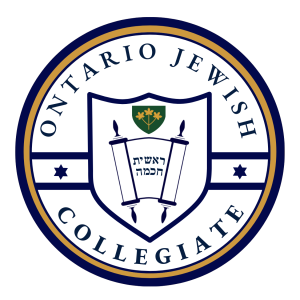 Getting the gold level Duke of Edinburgh award isn’t an easy feat. For Alexandra Wolfond, 19, it meant volunteering in an orphanage in Thailand, visiting Holocaust memorial sites on the March of the Living in Poland, learning to play field hockey and spending a day rappelling off walls with the Canadian army in Alberta.
Getting the gold level Duke of Edinburgh award isn’t an easy feat. For Alexandra Wolfond, 19, it meant volunteering in an orphanage in Thailand, visiting Holocaust memorial sites on the March of the Living in Poland, learning to play field hockey and spending a day rappelling off walls with the Canadian army in Alberta.
Alexandra Wolfond, 19, spent the day with Canadian troops while aiming for the Duke of Edinburgh gold award.
Wolfond, who is going into her second year at McGill for a bachelors of education, was one of six graduates from the Anne and Max Tanenbaum Community Hebrew Academy of Toronto to receive the gold level Duke of Edinburgh Award.
The award, which was founded in the UK in 1956, challenges youth aged 14 to 25 to engage in personal growth through four categories – community service, skills, physical recreation and adventurous journey.
The award has three levels, bronze, silver and gold. In order to attain a gold award, which takes around 18 months, youth must do a minimum of 90 hours of community service, participate in an adventurous journey, learn new skills, engage in a physical activity and complete a residential project, which requires youth to be away from home for at least five days and four nights.
“You have to be motivated,” Wolfond said of completing the award. “When I set my mind on something, I stay focused.”
For Wolfond, who realized she wanted to be a teacher while volunteering at orphanages in Thailand, Morocco, Indonesia, China and Vietnam, the award process was about more than just a certificate.
“I really enjoyed the community service aspect in Thailand. I enjoyed it all,” she said. “I’ve gotten my swim instructor [certificate], my life guarding [certificate]…I went for a soldier for a day trip…it just really opened my eyes.”
To Paul Shaviv, the director of education at TanenbaumCHAT, this is what the award is about.
“It’s the most internationally recognized youth award in the world,” Shaviv said.
“It’s a way to encourage children to live a very full life.”
Those who achieve a gold award receive a pin, which TanenbaumCHAT students got during their graduation ceremony, and must receive a certificate from either a member of the royal family or the governor general. Wolfond, along with fellow gold winner Ben Deverett, were chosen randomly to accept a certificate from the Duke of Edinburgh during a royal visit on July 5 at an award ceremony.

Lucie Pivnick, 19, collected and distributed pens and pencils to African schools while aiming for the Duke of Edinburgh gold award.
The other four winners from TanenbaumCHAT were Russell Citron, Lucie Pivnick, Sarah Silverberg and Shira Strauss, most of whom received their awards after graduating in 2009.
For Pivnick, also a McGill student now going into her second year, the award process was part of the reason that her summer will be spent volunteering with children in Israel and Ethiopia, where she’ll be working with Right to Play, a group that helps bring sports to disadvantaged communities worldwide.
Pivnick, 19, received her gold award in 2009 after spending 18 months learning to play the saxophone, going on the March of the Living and collecting and distributing pens and pencils to schools in Africa.
“It’s my nature to be interested in [volunteer work] but the award re-instilled the importance of it to me,” she said in a phone interview from Israel, where she volunteered with Save a Child’s Heart, an organization that brings kids to Israel for free heart surgery.
“[The award process] was challenging at times. It’s hard,” Pivnick said. “I guess it just taught me to push my boundaries and step outside my comfort zone and just to take risks.”






